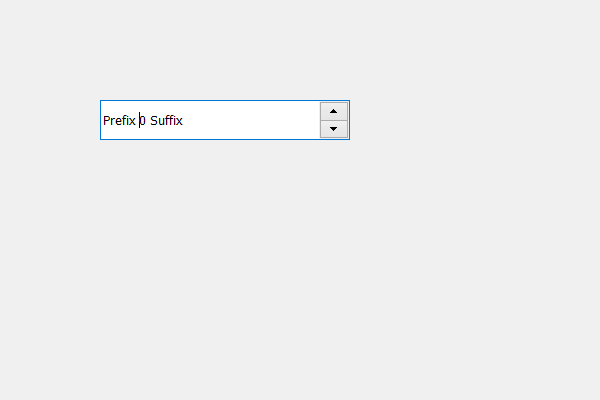En este artículo, veremos cómo podemos verificar si el cuadro de número está visible con la ayuda del isVisiblemétodo. Podemos ocultar el cuadro de número usando hidemétodo o setHiddenmétodo. Por defecto, el cuadro de número está visible.
Nota: si usamos este método dentro de la clase de ventana, devolverá falso ya que la ventana se creó en ese momento y no sabía si estaba visible o no, por lo tanto, se usa fuera de la clase
Para ello utilizamos el isVisiblemétodo.
Sintaxis: classs_object.spin_box.isVisible()
Argumento: no requiere argumento
Return : Devuelve bool
A continuación se muestra la implementación.
# importing libraries
from PyQt5.QtWidgets import *
from PyQt5 import QtCore, QtGui
from PyQt5.QtGui import *
from PyQt5.QtCore import *
import sys
class Window(QMainWindow):
def __init__(self):
super().__init__()
# setting title
self.setWindowTitle("Python ")
# setting geometry
self.setGeometry(100, 100, 600, 400)
# calling method
self.UiComponents()
# showing all the widgets
self.show()
# method for widgets
def UiComponents(self):
# creating spin box
self.spin = QSpinBox(self)
# setting geometry to spin box
self.spin.setGeometry(100, 100, 250, 40)
# setting prefix to spin
self.spin.setPrefix("Prefix ")
# setting suffix to spin
self.spin.setSuffix(" Suffix")
# create pyqt5 app
App = QApplication(sys.argv)
# create the instance of our Window
window = Window()
# checking if the spin box was visible
check = window.spin.isVisible()
# printing the status
print(check)
# start the app
sys.exit(App.exec())
Producción :
True

Publicación traducida automáticamente
Artículo escrito por rakshitarora y traducido por Barcelona Geeks. The original can be accessed here. Licence: CCBY-SA